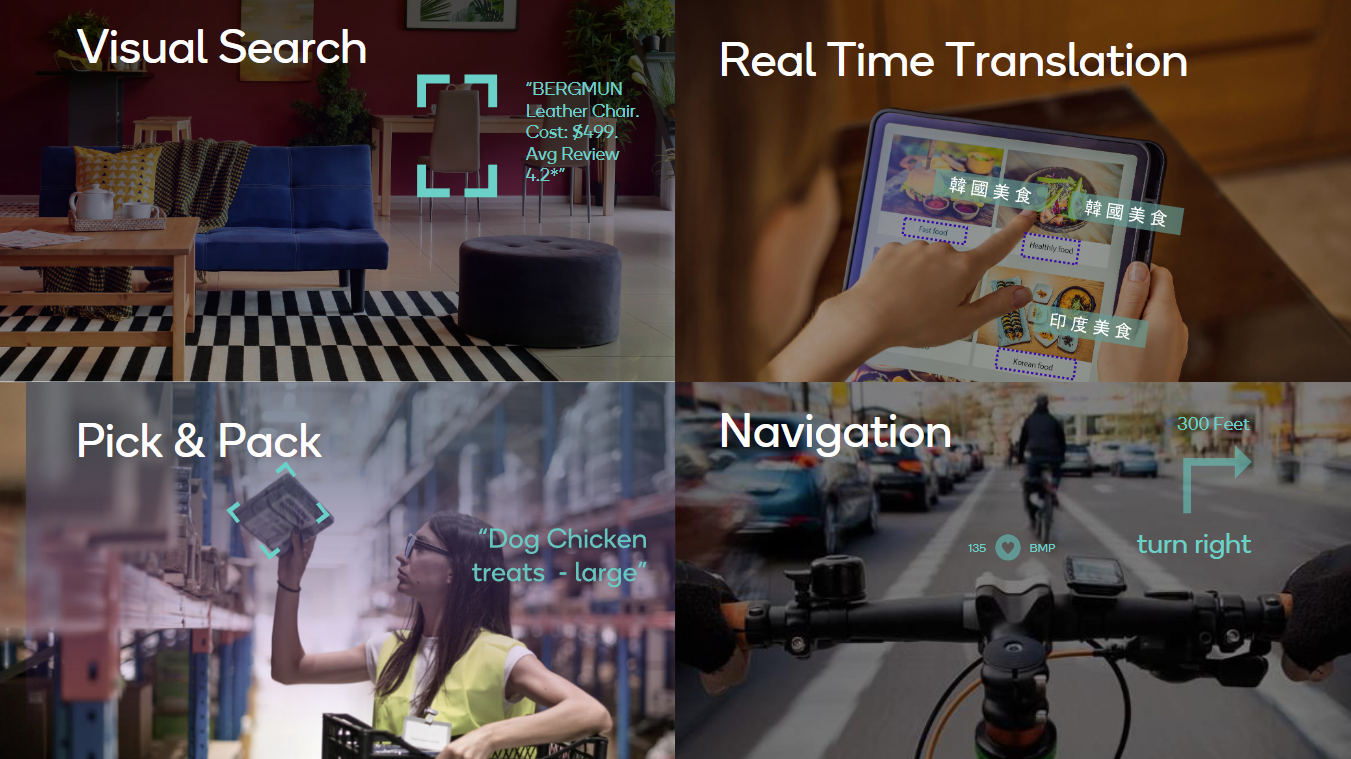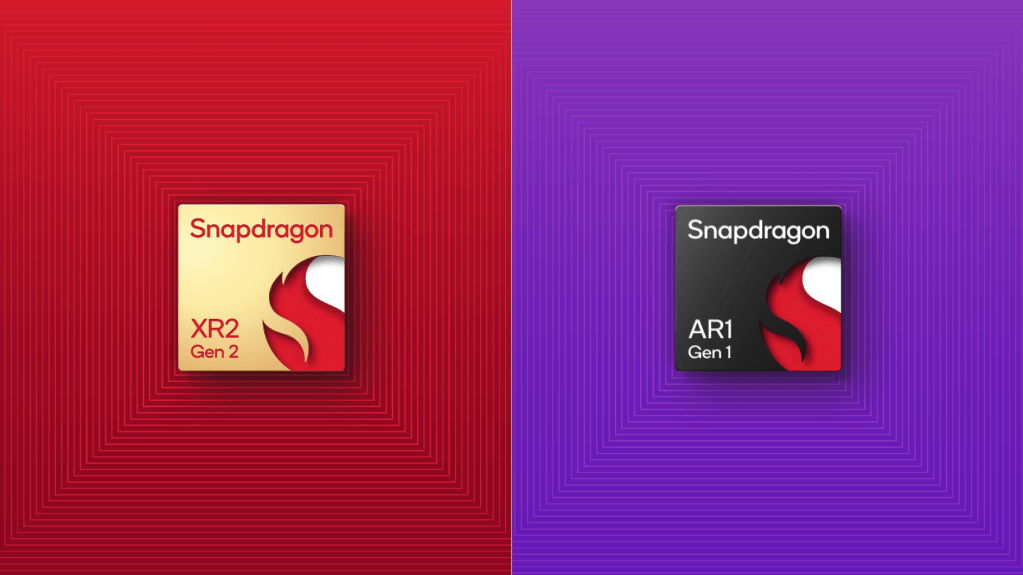Right in time for the launch of Meta’s Quest 3 VR goggles, Qualcomm today announced its newest chips for XR and AR platforms: the Snapdragon XR2 Gen 2 for VR and mixed-reality devices and the AR1 Gen 1, specifically designed for smart glasses.
It’s been a while since Qualcomm released a new XR platform. The XR2 Gen 1 is now over three years old and while there was speculation about an XR3 launch today, the company decided to go with the XR2 branding. Apparently, the way Qualcomm thinks about the XR[x] branding is that the XR1 is the “high quality” tier and the XR2 the “premium quality” tier, with room for more tiers in the future.
Still, the company promises a 2.5x improvement in GPU performance and an 8x improvement in AI performance, all while being significantly more energy efficient. Qualcomm also notes that the XR2 Gen 2 was optimized to power two 3k displays and take in inputs from up to 10 cameras and sensors, with a 12 ms latency for pass-through video for mixed reality applications.

When asked about the release cycle during a press briefing ahead of today’s announcement, Hugo Swart, Qualcomm’s VP and GM of XR, noted that the company’s pace of development is driving by both technology and business factors. “The key challenges are on power, latency, size and then performance — and performance, of course, is very much tied to display resolution,” he said. The higher the display resolution, though, the more power it takes to run the headset. “I cannot put 100 watts on your head. At best, maybe 20. Ideally, closer to 10 and 15. So that’s the magic that we have to work: how to put it all in one piece of silicone, that is affordable.”
Swart also used this to take a bit of a swipe at Apple and its expensive Vision Pro and custom-designed hardware. “I think selling a device for more than $3,000 — how many people can really afford that? You really need to have it at a point where everyone can afford to experience it. And that’s what we aim for.”

Qualcomm said that so far, its XR chips power about 80 devices, spanning the spectrum from VR to mixed reality. “We see actually a lot of traction already in the consumer market with things like gaming, fitness, social engagement, entertainment, live events, but very importantly, also in the enterprise, with things like training, education, medical and many others,” Swart said.

As for the AR1 Gen 1, if you pay unnecessarily close attention to Qualcomm product announcements, then you may remember that the company actually announced an AR2 Gen 1 system on a chip at last year’s at its Snapdragon Summit. Qualcomm’s branding choices here are nothing by confusing, but at its core, the AR1 chips made for more Google Glass–like stand-alone smart glasses with cameras for photo and video capture and one or two displays. The AR2 series, meanwhile, features a multichip architecture and is meant for more HoloLens-like immersive augmented reality glasses with support for six degrees of freedom and high-res displays.
Despite the efforts from multiple vendors and large brands, smart glasses with displays have remained a niche product. Qualcomm clearly hopes that this new platform will bring new life to this market thanks to a more powerful image-processing pipeline and what the company calls “on-glass” AI for voice commands and noise cancellation, for example. The AR1 Gen 1 can support displays with a resolution of 1280 x 1280 per eye and supports three degrees of freedom.
Ray-Ban’s new Stories smart glasses will use the new AR1 Gen 1 platform, though like most of the current set of smart glasses, it won’t feature a screen, even though the AR1 would support it. Head-up displays are a much harder problem to solve than putting a camera into glasses, after all, even though those would massively increase the usefulness of these platforms.
“The platform enables the user to capture, share or live-stream hands-free, directly from the glasses,” Qualcomm explains. “In addition, on-device AI enables personal assistant experiences such as audio quality enhancement, visual search, and real-time translation. Lastly, support for a visual heads-up display can enable content consumption, including video, that blend seamlessly in the users’ field of view.”
Ray-Ban Meta smart glasses livestream to Instagram and Facebook
































Comment